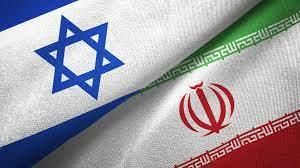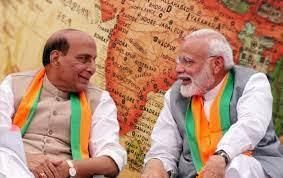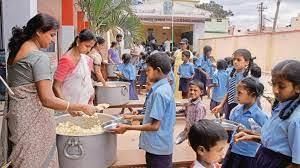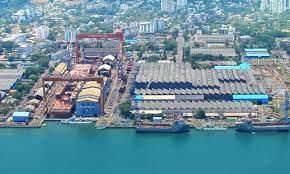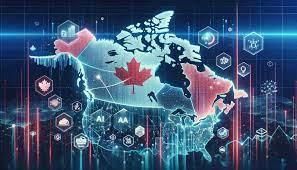Weekly Current Affairs (8th to 14th April 2024) | General Test Preparation for CUET UG - CUET Commerce PDF Download
What can be possible Impact of Iran-Israel Conflict on Global Politics?
The recent drone and missile attacks by Iran on Israel mark a significant escalation in the longstanding covert war between the two nations. This conflict, which began with an Israeli airstrike on Iran’s consulate in Damascus, killing several members of the Islamic Revolutionary Guard Corps, has now erupted into open aggression. The situation presents a precarious moment for regional stability and has broader implications for global politics.
Regional Destabilization
- The immediate impact of the Iran-Israel conflict is a heightened state of instability in the Middle East. Both countries hold significant influence in the region, and any escalation between them risks involving neighbouring countries either directly or through proxy engagements.
- Countries such as Syria, Lebanon (via Hezbollah), and even Saudi Arabia could find themselves drawn into a broader conflict, which might lead to an unpredictable and volatile regional security scenario.
Global Political Alignments
- The repercussions of the Iran-Israel conflict are likely to extend beyond regional borders, influencing global political alignments. With the United States publicly reaffirming its ironclad support for Israel, there may be shifts in international relations as countries position themselves either in Favor of Israel or Iran.
- This polarization could affect international bodies like the United Nations and regional alliances, possibly straining relations between the U.S. and other nations such as Russia and China that might view the conflict from a different perspective.
Impact on International Diplomacy
- Global diplomatic efforts, particularly those aimed at nuclear non-proliferation and peace in the Middle East, will face new challenges.
- The conflict might derail the already fragile Iran nuclear deal talks, as mutual distrust deepens. Additionally, any escalation could hamper peace processes in other parts of the region, with countries prioritizing national security concerns over diplomatic resolutions.
Economic Implications
- One of the most immediate global impacts of the Iran-Israel conflict could be on the economy, specifically in the energy sector. The Middle East plays a crucial role in global oil supply, and sustained conflict could disrupt oil production and transportation, leading to increased prices and economic instability worldwide.
- This would further complicate the global economic recovery, especially in nations still reeling from the effects of other geopolitical tensions and the COVID-19 pandemic.
Escalation and its Risks
- The potential for a broader military escalation cannot be overlooked. If Iran or its regional allies retaliate further against Israel, or if Israel carries out more pre-emptive strikes, the conflict could spiral out of control, leading to a significant military confrontation.
- Such a scenario would not only have devastating consequences for the Middle East but could also draw in global powers, either directly or through NATO and other military alliances, pushing the region into a broader conflict.
Dr. Ambedkar Jayanti 2024
- Ambedkar Jayanti 2024, celebrating the birth anniversary of Dr Bhim Rao Ambedkar, the “Father of Indian Constitution,” was observed on April 14, 2024.
- This year marks the 134th birthday of the iconic figure, who dedicated his life to eradicating discrimination against untouchables and fighting for the rights of women and labourers.
- Known as ‘Equality Day,’ Ambedkar Jayanti is a public holiday in India, with events like processions and tributes at his statues held nationwide. Dr Ambedkar’s role as the principal architect of the Indian Constitution is highlighted during the celebrations, as well as his advocacy for equality and education as a means of social transformation. His global scholarly pursuits and contributions to economics are also acknowledged.
- The day serves as a reminder of his vision of a society free from discrimination and inequality, inspiring ongoing efforts for a more inclusive and equitable society.
About Dr Ambedkar
- Dr. B.R. Ambedkar, also known as Babasaheb Ambedkar, is regarded as the chief architect of the Indian Constitution and an advocate for social equality and the rights of marginalized communities.
- He formed the Bahishkrit Hitakarini Sabha in 1924. He represented the depressed classes at the First Round Table Conference in London in 1930. Dr. Ambedkar established the Independent Labour Party in 1936, which later transformed into the All India Scheduled Castes Federation in 1942. He opposed strikes by civil servants and served as a member of the Viceroy’s Executive Council from 1942 to 1946.
- Dr. Ambedkar started the weekly paper ‘Mooknayak’ in 1920 and authored several books on various topics. He was appointed as the first Law Minister of Independent India but resigned due to differences with Nehru. Ambedkar was elected to the Constituent Assembly from Bengal and later from Bombay, and served as the Chairman of the Constitution Drafting Committee. He called the Right to Constitutional Remedy as the soul of the Constitution.
- Despite his significant contributions, Dr. Ambedkar faced electoral defeats in the 1952 Lok Sabha elections and a subsequent by-election in 1954. He converted to Buddhism on October 14, 1956, and passed away on December 6, 1956. After his death, his followers renamed the Scheduled Caste Federation as the Republican Party of India in 1957.
Taliban to Restore Land Rights to Afghan Hindus, Sikhs
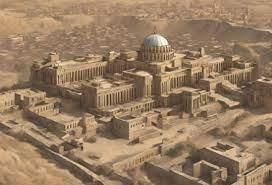
- India has welcomed the Taliban regime’s decision to restore private land rights to Afghan Hindus and Sikh minorities as a positive development.
- The Taliban administration has set up a commission to ensure the return of property rights to the Hindu and Sikh communities, which were seized by warlords during the previous dispensation in Kabul.
- India’s External Affairs Ministry spokesperson Randhir Jaiswal described the move as positive during a media briefing.
- India has not yet recognized the Taliban regime and has been advocating for a truly inclusive government in Afghanistan, while also emphasizing that Afghan soil should not be used for terrorist activities.
- India has been pushing for unimpeded humanitarian aid to address the worsening humanitarian crisis in Afghanistan while re-establishing its diplomatic presence in Kabul in June 2022. India withdrew its officials from the embassy in August 2021 due to security concerns following the Taliban’s takeover.
About Taliban regime
- Since the Taliban’s takeover of Afghanistan in August 2021, the country has faced significant challenges. The new regime has implemented strict Islamic laws, limiting women’s rights and access to education and employment. The economy has crumbled, with widespread poverty and food insecurity affecting millions. International aid has been largely suspended, exacerbating the humanitarian crisis.
Hindus and Sikhs under Taliban Rule in Afghanistan
Following the Taliban’s takeover of Afghanistan in August 2021, the Sikh community, along with other religious minorities, has faced increased persecution, discrimination, and violence. As a result, many Sikhs have been forced to flee the country, seeking safety and asylum elsewhere including India. Prior to the Taliban’s rule, Afghanistan’s Sikh population numbered around 8,500. However, since the takeover, their numbers have drastically decreased to just a few hundred. Sikhs in Afghanistan have reported receiving threats, facing harassment, and being subjected to physical attacks by Taliban members and other extremist groups.
World Homeopathy Day 2024 Observed
World Homeopathy Day was celebrated on April 10, in honor of Dr. Samuel Hahnemann, the founder of homeopathy. A Homoeopathy Symposium took place in New Delhi, focusing on global collaboration to enhance the efficacy and acceptance of homeopathy worldwide. The importance of conducting evidence-based research for public benefit was emphasized to further enhance the credibility and visibility of homeopathy.
About Homeopathy
- Homeopathy, a complementary medical system, has made contributions to healthcare despite ongoing debates about its efficacy. It offers individualized treatments based on the principle of “like cures like” and heavily diluted substances. Homeopathy has gained popularity for addressing chronic conditions and promoting holistic well-being.
- While more rigorous scientific research is needed to validate its effectiveness, many individuals report positive experiences with homeopathic treatments. Homeopathy’s emphasis on personalized care and minimal side effects has attracted patients seeking alternative approaches to conventional medicine.
About Dr. Samuel Hahnemann
- Dr. Samuel Hahnemann (1755-1843) was a German physician and the founder of homeopathy. He developed the concept of “like cures like,” believing that a substance causing symptoms in a healthy person could cure similar symptoms in a sick person. Hahnemann created the process of dilution and succussion to prepare homeopathic remedies.
- Despite controversy, homeopathy gained popularity in the 19th century and is still practiced today. Hahnemann’s work significantly influenced alternative medicine and sparked ongoing debates.
Homeopathy in India
- Homeopathy was introduced to India in the early 19th century and gained popularity due to its perceived effectiveness in treating various epidemics, such as cholera and plague. The government recognizes homeopathy as a legitimate medical system under the Homeopathy Central Council Act, 1973. The Ministry of AYUSH (Ayurveda, Yoga and Naturopathy, Unani, Siddha, and Homeopathy) regulates and promotes homeopathy in the country. There are numerous homeopathic medical colleges in India offering undergraduate and postgraduate degrees. The Central Council of Homeopathy (CCH) oversees the education and practice of homeopathy in the country.
- In India, Homeopathic treatments are available in many government-run hospitals and dispensaries. India has several research institutes dedicated to homeopathy, such as the Central Council for Research in Homeopathy (CCRH) and the National Institute of Homeopathy (NIH), which conduct clinical trials and basic research on homeopathic medicines.
India Expands Strategic Ties and Arms Exports with New Military Attachés
- India is expanding its strategic ties with key regions by posting defence attaches in several countries, including Ethiopia, Mozambique, Ivory Coast, Philippines, Armenia, and Poland.
- This move comes amid renewed geopolitical rivalries and is part of India’s broader policy initiative.
Appointment of Defence Attache in Djibouti
- New Delhi is appointing a new defence attaché to Djibouti, a tiny African nation that serves as a major maritime gateway around the Red Sea and Gulf of Aden. Djibouti is considered a prized location for military bases, and the new defence attaché will be the second one to hold the post in the island nation.
Rationalisation of Military Officials in Moscow and London
- India is planning to rationalise the strength of its teams of military officials in its embassy in Moscow and high commission in London.
- Some of the defence attaches posted in these two countries are set to be deployed elsewhere as part of the rationalisation process, which factored in various aspects of New Delhi’s foreign policy priorities and optimum use of manpower.
Expanding Strategic Engagement with Africa
- The decision to appoint defence attaches in African countries of Ethiopia, Mozambique, and Ivory Coast is in sync with New Delhi’s priority to expand its strategic engagement with the African continent. Several African countries have already expressed keen interest in procuring Indian military platforms, equipment, and hardware.
- In recent years, India has been positioning itself as a leading voice, flagging concerns, challenges, and aspirations of the Global South or the developing nations, especially the African continent.
Countering China’s Influence in Africa
- India’s ties with the African continent have witnessed a major uptick amid China’s persistent efforts to expand its influence in the African countries.
- The induction of the 55-nation African Union as a permanent member of the G20 was seen as a major milestone of India’s presidency of the grouping of the world’s 20 big economies in 2023.
Expanding Defence Ties with the Philippines
- India is also looking at further expanding defence ties with the Philippines against the backdrop of growing global concerns over China’s increasing military assertiveness in the South China Sea.
- In January 2022, India sealed a USD 375 million deal with the Philippines for supplying three batteries of the missile, and the supplies are set to begin soon.
Appointment of Defence Attache in Armenia
- The decision to appoint a defence attache in Armenia comes as the country in the Caucasus region shows deep interest in enhancing its defence relations with India. Last year, arms deal to supply Indian military hardware, including multi-barrel rocket launchers to Armenia, was firmed up amid the Armenia-Azerbaijan clash over Nagorno-Karabakh.
Expanding Defence Ties with Poland
- India’s decision to appoint a defence attaché to Poland, a member of the European Union, is also being considered significant. It is reflective of the desire to expand two-way defence ties. Last year, the European Union (EU) posted a military attache to its mission in India for the first time.
Deployment of Defence Attaches
- A total of 16 defence attaches from the Indian Army, the Navy, and the Indian Air Force will shortly assume their new positions in the above-mentioned countries.
India Emerges as Fourth Largest Exporter of Digitally Delivered Services: WTO Report

- According to a report on Global Trade Outlook and Statistics released by the World Trade Organization (WTO), India has now become the fourth largest exporter of digitally delivered services. The country’s share in international trade in services has increased to more than a fifth. In 2023, India’s digitally delivered services exports were estimated at $257 billion, which is 17% higher than the previous year.
- This growth has allowed India to surpass Germany in the rankings, but it still lags behind the United States, the United Kingdom, and Ireland. Digitally delivered services, which include professional services in education, gaming, and streaming music and videos, have seen a significant increase over the past two decades.
- They now account for over one-fifth of global services trade, compared to 14% in 2005. Despite the decline in goods trade due to the COVID-19 pandemic, exports of digitally delivered services have increased by 50% and are now higher than pre-pandemic levels.
- The report also highlights the rapid increase in the use of artificial intelligence (AI) in creating content, such as text, images, music, and videos, which is expected to further boost trade in digitally delivered services.
- The WTO expects the global economy and trade to improve, with a forecasted 2.6% increase in goods trade volume in 2024.
About World Trade Organization (WTO)
- The World Trade Organization (WTO) is an international organization that regulates and facilitates global trade between nations. Established in 1995, it succeeded the General Agreement on Tariffs and Trade (GATT). The WTO provides a framework for negotiating trade agreements, settling trade disputes, and ensuring that member countries adhere to agreed-upon trade rules. It aims to promote free trade, reduce barriers, and foster economic growth and development. As of 2023, the WTO has 164 member countries.
About Digitally Delivered Services
- Digitally delivered services are services provided and consumed through digital channels, such as the internet or mobile applications. These services span various industries, including e-commerce, online banking, streaming, software as a service, online education, telemedicine, and digital marketing. Digital services offer accessibility, cost-effectiveness, scalability, and personalization. However, they also face challenges related to data privacy, security, and the digital divide. As technology advances, the importance and scope of digitally delivered services are expected to grow.
Dark Energy Spectroscopic Instrument (DESI)
In May 2021, the Dark Energy Spectroscopic Instrument (DESI) began its five-year survey to map the universe and study dark energy. Recent findings from the first year of DESI observations, which included light from 6 million galaxies up to 11 billion years old, hint at potential changes in dark energy density, challenging current theoretical models.
About DESI
- In October 2019, the Dark Energy Spectroscopic Instrument (DESI) was installed on the 4-meter Mayall Telescope at Kitt Peak National Observatory in Arizona, USA. The instrument underwent commissioning and testing, and in May 2021, it began its five-year survey to map the universe and study dark energy.
- DESI is a state-of-the-art instrument designed to create the largest and most detailed 3D map of the universe ever made. By measuring the redshifts of millions of galaxies and quasars, DESI aims to shed light on the mysterious force known as dark energy, which is thought to be responsible for the accelerating expansion of the universe.
Instrument Design
- DESI consists of a focal plane with 5,000 robotically controlled optical fibres, each capable of precisely positioning itself to collect light from a specific galaxy or quasar. The light collected by these fibres is then split into specific wavelengths using spectrographs, allowing scientists to measure the redshift and distance of the objects.
Survey Goals and Progress
- Over the course of its five-year survey, DESI aims to measure the redshifts of over 35 million galaxies and quasars, covering a cosmological volume of 14 billion light-years. As of 2023, DESI has been observing galaxies for three years, with plans to continue for at least two more years.
Dark Energy and Cosmic Expansion
- Dark energy is a hypothetical form of energy that permeates all of space and tends to accelerate the expansion of the universe. While the existence of dark energy is supported by observations of distant supernovae and the cosmic microwave background, its precise nature remains one of the greatest mysteries in modern cosmology.
DESI Findings and Implications
- Data from the first year of DESI observations were used to create a comprehensive 3D evolutionary map of the universe. The precise distance measurements allowed scientists to calculate the universe’s expansion rate at different points in history. The DESI collaboration calculated that the universe’s expansion speed increases by 68.5 km per second every 3.26 million light-years.
- Interestingly, DESI results hint at potential changes in dark energy density, with increases and decreases observed. If confirmed, these findings could lead to a complete reevaluation of our understanding of the universe and potentially new physics. Scientists speculate that dark energy could be a new invisible field or a new particle, but more data is needed to confirm the DESI findings with a higher confidence level.
Collaboration and Future Work
- DESI is a collaboration of nearly 500 researchers from around the world, including scientists from the United States, United Kingdom, France, Spain, and other countries. As DESI continues its observations, the data collected will be made publicly available, allowing researchers worldwide to study and analyze the data to further our understanding of the universe and its evolution. The potential variability in dark energy density, as hinted at by DESI’s first-year results, will be a key focus of future research and could lead to groundbreaking discoveries in cosmology and fundamental physics.
Indonesian Delegation Visits India to Learn Best Practices in Mid-Day Meal Scheme and Digital Inclusion
An Indonesian delegation led by Mochammad Firman Hidayat, Deputy Coordinating Minister of Maritime Resources, Coordinating Ministry of Maritime Affairs and Investment, visited India last week to explore collaboration in various sectors and learn from India’s best practices in the mid-day meal scheme and digital inclusion. The visit comes in the context of Indonesia’s recently concluded elections and the incoming administration’s plans to introduce new socio-economic initiatives.
Recent Context
- Indonesia’s President-elect Prabowo has proposed implementing a mid-day meal scheme in schools, similar to India’s program, as part of his election manifesto. The Indonesian delegation’s visit to India aimed to gather insights and knowledge to make their domestic mid-day meal plan a success. The delegation also sought to learn from India’s experiences in digital inclusion and connectivity, which are among the top domestic priorities of the Indonesian government.
Collaboration in Biotechnology and Agriculture
- The Indonesian delegation held meetings with officials from the Department of Biotechnology and visited the National Institute of Plant Genome Research (NIPGR) in New Delhi. Discussions focused on biotechnological research, development, and the innovation ecosystem in India. The delegation also explored potential areas of cooperation in reducing marine debris, aquaculture, bio-material, bio-fuel, and early warning systems for earthquakes during their visit to the Ministry of Earth Sciences.
Learning from India’s Digital Public Infrastructure
- At the Ministry of Electronics and Information Technology, the Indonesian delegation gained insights into India’s Digital Public Infrastructure, particularly the Jan Dhan Aadhar Mobile (JAM) trinity initiative for financial inclusion and accessibility. The JAM trinity links bank accounts, Aadhaar (unique identity), and mobile numbers of Indian citizens, enabling direct benefit transfers during the Covid-19 pandemic without requiring in-person or material movements.
Studying the Mid-Day Meal Scheme
- One of the primary objectives of the Indonesian delegation was to learn about India’s “Mid-Day Meal Scheme.” The delegation interacted with officials from the Ministry of Education, gaining insights into the scheme’s implementation, logistics, nutritional value, challenges, and the roles of central and state governments. The delegation also visited Akshaya Patra’s kitchen facilities in Bangalore, a not-for-profit organization that is the Government of India’s largest partner in operating the Mid-Day Meal Scheme.
Exploring Digital Infrastructure and Blue Economy
- The Indonesian delegation visited the Centre for Digital Public Infrastructure to delve deeper into India’s digital infrastructure landscape. They also visited Sea6 facilities in Bangalore and Tuticorin to strengthen possibilities of cooperation in the Blue Economy. Sea6 Energy, a company that focuses on using seaweed for various applications, recently launched the world’s first large-scale mechanized tropical seaweed farm in Lombok, Indonesia.
Cochin Shipyard Signs Master Shipyard Repair Agreement with U.S. Navy
Cochin Shipyard Limited (CSL), a state-run shipbuilding facility in Kochi, has become the third Indian shipyard to enter into a Master Shipyard Repair Agreement (MRSA) with the U.S. Navy. This agreement enables CSL to repair U.S. Navy ships, following in the footsteps of Larsen & Toubro (L&T) and Mazagon Dock Shipbuilders Ltd. (MDL).
Recent Context
- India and the U.S. have been actively seeking to expand cooperation in ship repair and maintenance, with the aim of transforming India into a regional hub for these services. The signing of the MRSA by Cochin Shipyard Limited is a significant step towards achieving this goal.
Details of the Agreement
- The MRSA signed by Cochin Shipyard Limited is a non-financial agreement. This agreement will facilitate the repair of U.S. Naval vessels under the Military Sealift Command at CSL. The shipyard underwent a detailed evaluation process and capability assessment by the U.S. Navy – Military Sealift Command before being qualified to enter into the MRSA.
Benefits for India and the U.S.
- The expansion of cooperation in ship maintenance and repairs is mutually beneficial for both India and the U.S. Indian shipyards gain business opportunities and expertise, while the U.S. Navy gains access to alternative options for smaller repairs of its ships without having to travel far, thereby reducing turnaround time and costs.
Previous Agreements
- L&T shipyard in Kattupalli near Chennai was the first Indian shipyard to sign the MRSA in July 2023. In March 2024, a U.K. naval ship arrived at Kattupalli for repairs, marking the first such engagement under the agreement.
Commitment to Advancing India as a Maintenance and Repair Hub
- In a joint statement issued after bilateral talks between Prime Minister Narendra Modi and U.S. President Joe Biden in September 2023, both sides recommitted to advancing India’s emergence as a hub for the maintenance and repair of forward-deployed U.S. Navy assets, as well as other aircraft and vessels.
U.K.’s Littoral Response Group Deployment
- The U.K.’s Littoral Response Group (LRG) arrived in Chennai, as the first engagement of its deployment to the Indo-Pacific region. The Royal Fleet Auxiliary Argus and RFA Lyme Bay conducted maritime exercises with the Indian Navy and will undergo essential maintenance at L&T shipyard, further demonstrating the growing cooperation in ship maintenance and repairs between India and its partners.
Nepal Army Launches Mountain Cleaning Campaign 2024 at Mt. Everest
The Nepal Army will collect around 10 tonnes of garbage and five bodies lying at Mt. Everest as part of the Mountain Cleaning Campaign 2024 in the Everest region. The cleaning campaign aims to control human-made pollution in the Himalayas and address problems related to climate change.
Expedition Team
- A 12-member team led by Maj. Aditya Karki will embark on the Everest base camp on April 14. An 18-member Sherpa team will assist the army in its cleaning expedition. The expedition will be flagged off by Nepal Army chief Gen. Prabhuram Sharma in Kathmandu.
Waste Management
- The team will bring garbage from Mt. Everest, Mt. Lhotse, and Mt. Nuptse. Biodegradable waste will be brought to Namche Bazaar below the base camp and handed over to the Sagarmatha Pollution Control Committee (SPCC) for proper treatment. Non-biodegradable waste and dead bodies will be brought to Kathmandu.
Collaborations
- The Nepal Army will collaborate with the Ministry of Forest and Environment, the Tourism Department, and the Nepal Mountaineers Association for the Everest region’s cleaning campaign.
Previous Campaigns
- The Nepal Army has been launching the cleaning campaign in the Everest region since 2019. This will be the fourth such campaign led by the Nepal Army.
Additional Facts
- Mt. Everest, the world’s highest mountain, stands at 8,848 meters (29,029 feet) above sea level. The Everest region attracts thousands of climbers and trekkers each year, leading to an accumulation of waste and environmental concerns. The Sagarmatha Pollution Control Committee (SPCC) is a local NGO responsible for managing waste in the Everest region and promoting sustainable tourism practices.
Canada Unveils C$2.4 Billion AI Investment Package
The Canadian government has announced a substantial C$2.4 billion ($1.8 billion) investment package to bolster the country’s artificial intelligence (AI) sector. The move comes as Prime Minister Justin Trudeau continues to unveil spending plans ahead of a new budget.
Computing Capabilities and Technological Infrastructure
- The primary focus of the investment is a C$2 billion fund dedicated to enhancing computing capabilities and technological infrastructure. This funding aims to accelerate the work of AI researchers, startups, and other companies in the field.
Adoption of AI in Various Sectors
- In addition to the main fund, the government will allocate resources to expedite the adoption of AI in sectors such as agriculture and healthcare. The goal is to harness the full potential of AI to create well-paying jobs for Canadians, especially young people, while simultaneously increasing productivity and economic growth.
Montreal: A Hub for AI Expertise
- Prime Minister Trudeau made the announcement in Montreal, which has emerged as one of Canada’s AI hubs. The city has developed a strong reputation for fundamental research, largely due to the presence of renowned AI researcher Yoshua Bengio. Last year, Bengio joined notable figures such as Elon Musk and Apple Co-Founder Steve Wozniak in signing a letter urging developers to pause the training of powerful AI models.
Additional Facts:
- Canada is home to several AI hubs, including Toronto, Edmonton, and Vancouver, in addition to Montreal. The country has produced numerous influential AI researchers, such as Geoffrey Hinton, Yoshua Bengio, and Richard Sutton, who have made significant contributions to the field of deep learning and reinforcement learning. The Canadian government has previously invested in AI research and development through initiatives like the Pan-Canadian AI Strategy, launched in 2017 with a budget of C$125 million over five years.
|
164 videos|800 docs|1156 tests
|


